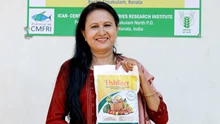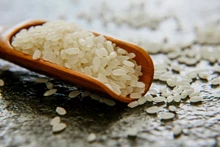
More farmers in Karur, Salem, and Namakkal districts in Tamil Nadu would get seed materials for the drought-resistant Sree Athulya variety of cassava, also known as maravalli kizhangu.
Farmers in Salem who acquired 18 tonnes of cassava per acre instead of their standard 12-15 tonnes stated that they did not first believe this variety could be pest resistant.
Subramanian, a farmer from Goodamalai in Salem, reported that he had also planted the renowned Thailand variety in another plot and that pests had attacked it. However, the variety supplied by the ICAR-Central Tuber Crops Research Institute in Thiruvananthapuram proved to be more pest-resistant and had additionally introduced in a bountiful harvest.
"It also didn't take much effort. A spell of rain helped me with the pest attack and I managed without much loss,” he stated.
This was the first harvest of the Sree Athulya variety in Salem district, and the seven farmers who decided to plant it were able to achieve a higher yield while spending substantially less than they would normally since they saved on pesticide, stated D. Jaganathan, Senior Scientist, ICAR-CTCRI.
R. Muthuraj, Principal Scientist, indicated that the stems of crops that may grow up to 10 feet tall will now be cut into smaller pieces and distributed to additional farmers.
Recently, 10 farmers in Karur district received seed materials of this variety, which is heat-resistant, can survive drought conditions, and may provide a good harvest despite the soil not being very fertile.
According to P. Prakash, a scientist, this selection had a starch level of 34%, which was much beyond the limit used by customers.
"Since the local varieties contain starch content of up to %, the farmer would only be paid 80 percent of the market rate. This can also be cultivated in coconut and fruit groves because it just has to be watered once a week. Similarly, vegetables may be grown alongside this crop since there is plenty of space between plants," he said.
Apart from 10 farmers in Karur, 20 in Salem, and another 20 in Namakkal, the scheme's free inputs will now benefit another 20 people in Namakkal.
"Farmers are first hesitant to grow this crop since they are unfamiliar with it. However, in one village if a few farmers are convinced, they will take it. And once it brings them a good harvest, more people catch onto it. We have seen success in Pachamalai area where 50 farmers grow this variety,” he added.











